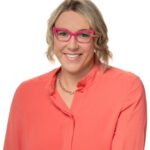
Breast cancer remains one of the most common cancers among women, but the good news is that early detection can make all the difference. By identifying breast cancer at its earliest stages, treatment options are often less invasive, recovery times can be shorter, and survival rates are significantly higher. At Tucson Breast Health Specialists, patients receive expert, compassionate care with the most up-to-date tools available for detection and treatment.
What is Early Detection?
Early detection means finding breast cancer before it has spread beyond the breast. This can be achieved through regular screenings, imaging, and physical exams. Detecting cancer early often allows for more treatment choices, better surgical outcomes, and a higher chance of long-term survival.
According to the American Cancer Society, the five-year relative survival rate for localized breast cancer is 99 percent. Once cancer spreads to nearby lymph nodes, that number drops to 87 percent, and if it spreads to other areas of the body, the rate decreases to 32 percent. These statistics show why detecting breast cancer at the earliest stage is so critical.
Why Early Detection is Important
When breast cancer is caught early, patients often benefit from less aggressive treatments, which can mean shorter recovery times and improved quality of life. In many cases, minimally invasive surgical options are available, allowing patients to return to their daily routines more quickly.
Early detection also gives patients more control in their treatment journey. It creates the opportunity to plan a course of care that fits their lifestyle, needs, and personal goals while improving outcomes.
When to Monitor for Early Detection
Every woman should be mindful of her breast health, but some may need to begin monitoring earlier, especially those with a family history or other risk factors. Dr. Michele Ley, MD, FACS, encourages patients to talk with their providers about when to start screenings and how often they should occur.
Women at average risk should begin annual mammograms at age 40, while those at higher risk may need additional imaging or genetic testing at an earlier age. Self-awareness is also essential. Noticing changes such as lumps, skin dimpling, or nipple changes should always prompt a discussion with a healthcare provider.
Learn more about high-risk evaluation and screening offered at Tucson Breast Health Specialists.
How is Early Detection Done
There are several ways to detect breast cancer early, and many can be incorporated into routine care.
- Mammograms remain the gold standard for screening, especially for women over 40
- Ultrasound and MRI can be helpful for women with dense breast tissue or higher-than-average risk
- Clinical breast exams performed by a provider can detect abnormalities that may not show up on imaging
- Self-exams allow women to become familiar with their breast tissue and notice changes early
For women at higher risk, a surveillance plan is especially important. This typically includes annual 3D mammography, alternating with annual screening MRI. MRI is particularly valuable for patients with dense breast tissue, where mammograms alone may not be as effective.
Ideally, these tests are scheduled six months apart, so there is screening every half-year. Surveillance also includes visits with Dr. Ley every six to twelve months for a physical exam. This consistent, ongoing care gives patients the best chance of catching breast cancer early.
At Tucson Breast Health Specialists, patients have access to advanced imaging technology and individualized screening plans that address their unique needs.
Why Choose Tucson Breast Health Specialists?
Choosing the right specialist is one of the most important steps in breast health care. Dr. Michele Ley, MD, FACS, a board-certified breast surgical oncologist, has cared for women in Tucson since 2006. She has trained at some of the nation’s top institutions and has served as medical director for major breast programs in the region.
Beyond her impressive credentials, Dr. Ley brings a deeply personal perspective to her work. As a breast cancer survivor diagnosed at age 44 through high-risk screening, she understands firsthand the importance of catching breast cancer early. Her own journey allows her to provide not only advanced surgical care but also compassionate, reassuring support to each patient.
The team at Tucson Breast Health Specialists works together to ensure every patient receives a personalized plan, from early detection strategies to treatment options designed for the best possible outcomes.
Contact Us
Early detection saves lives. If you are due for a screening, have concerns about your breast health, or have a family history that increases your risk, do not wait to take action. At Tucson Breast Health Specialists in Tucson, AZ, we are here to guide you with compassion, expertise, and care you can trust.
Contact us today to schedule an appointment or send us a message. Taking the first step toward early detection is one of the most important decisions you can make for your health.
Michele Ley, MD, FACS
Dr. Michele Ley, a breast surgical oncologist in Tucson since 2006, combines compassionate care with cutting-edge techniques to provide personalized treatment plans for breast cancer and high-risk patients. With a medical degree from St. Louis University, residency at the University of Arizona, and fellowship at UC San Francisco, Dr. Ley is board-certified in General Surgery and a member of the American Society of Breast Surgeons. Her experience as a medical director for breast programs and her own journey as a breast cancer survivor at age 44 uniquely position her to offer empathetic and expert care to her patients.






